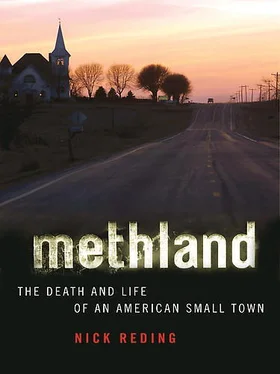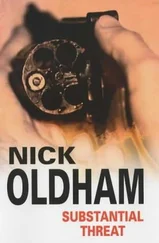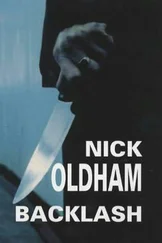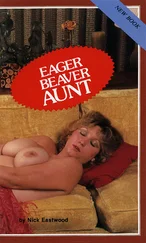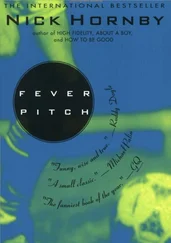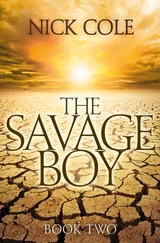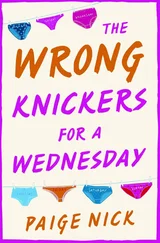Here Nathan’s behavior is allegorical. A decade ago, Oelwein was the butt of one of Jay Leno’s jokes on The To night Show . In the intervening decade, meth came to signify the distillation of poverty and disenfranchisement in America to which Leno spoke, which is to say it came to signify the rural United States, and ultimately, the fullness of its outsider status. Oelwein was the standard bearer. In the wake of this, the town’s—like Nathan’s—posture is a careful balance of pride and defensiveness.
Not long after Jay Leno’s joke, Larry Murphy began trying to find a place for Oelwein in a new world. It took Murphy a considerable amount of time to build consensus for his first, giant step, which was to regain some balance—via large-scale economic reforms—against the unmovable weight that a drug had come to represent. The town’s fight for balance can be seen everywhere—in the downtown improvements and the dark streets at night in the Ninth Ward, and in Nathan’s and Clay’s and Jarvis’s and Major’s private lives. Jarvis had ruined his life for inclusion in the glamour of all that Oelwein wasn’t in the late 1980s and early 1990s: the Corvettes and the money and the promise of what people like Lori Arnold and Jeffrey William Hayes seemed to offer. Major had nearly ruined his life a decade later for inclusion in the Family. Clay Hallberg, in reward for having come home, wanted inclusion in his father’s world, in which a town GP didn’t have to fight the hospital and the insurance companies. In a way, it seems that, like all these people, the rural United States has been fighting for balance since the early 1980s and for acceptance in a nation intensely divided between the middle and the coasts. In the last decade, meth has become an apt metaphor for the division. And those conflicts even exist within Oelwein, where meth once again provides the lexicon: either you are a shitbag tweaker or you aren’t. And while there is no reason to be unfriendly about it—no reason, that is, not to exchange pleasantries on the way into court—every time Nathan put a tweaker in jail, it pushed the balance slightly more in the right direction.
In November 2007, Murphy had organized what he called a Community Burial Ceremony of Gloom and Doom. What was contained in the coffin carried by a procession of townsfolk were the symbolic remnants of Oelwein’s economic and social helplessness. What Murphy wanted to make clear, however corny it seemed, was that people should no longer take suffering as a precondition of their lives. Murphy wanted people to fight, and to be aggressive and prideful about the rebuilding. As far as what the change in one town might do relative to the direction of the rest of the country, Murphy and Nathan and Clay were all too aware that what happened in Oelwein was just a drop in the bucket. There was a feeling akin to that of a city-state under siege. Oelwein was repelling the invaders, but that didn’t mean they were going away. The lack of good jobs was certain to remain, drug traffickers were likely to keep gaining a foothold, and the population would dwindle, whether or not corn prices stayed high and the local businesses all switched to geothermal heating.
As Nathan and I talked about this one evening, I asked him if he’d consider running for mayor once Murph was no longer in office. We were in his garage. The fire in the stove was out, and we were cutting kindling to get it going again.
“Yes,” said Nathan, “I would.”
It was one of the only times in two and a half years at that point that I heard Nathan speak of the future with an utter lack of equivocation. Larry Murphy had changed things, indeed.
One night on that last trip to Iowa, I drove down to In dependence to see Major. When I arrived, he was babysitting his son Buck, who was now four years old. Major was still living with his parents, Joseph and Bonnie. That they trusted Major enough to go to a party that night was a great improvement since the summer of 2005. Back then, fresh off a horrible three years during which Major and his girlfriend would break into Steve and Brenda’s home to steal what they could in order to sell it to buy more meth, Major’s parents were afraid to leave him alone for even fifteen minutes. Now his parents were once again considering something they thought they’d never again have the chance to do: take one of their beloved fishing trips to Canada next summer.
When I got to his parents’ house, Major was drinking a beer and chewing tobacco as he prepared Buck’s supper of micro waved tomato and cheese pizza. Buck, once the child with the highest hair-follicle count of methamphetamine in the history of the state of Iowa, was watching TV from inside a fort he’d built by anchoring one side of a blanket beneath the couch cushions and the other side beneath heavy books on top of the coffee table. On both sides, he’d stacked cardboard bricks from the floor to the blanket-roof to make walls. Buck peered at the television out of a hole he’d left in the bricks. On TV, Bugs Bunny attempted to outwit Yosemite Sam, who in this version played the part of a French chef hell-bent on fricasseeing rabbit for dinner. Presently, Buck destroyed the fort he had created and marched into the kitchen.
“What?” said Major.
“Dinnertime,” said Buck.
“Because you’re the boss?”
“Yes,” said Buck. “And boss hungry.”
As Buck sat on the couch and ate, Major updated me on all that had been going on. Words like sex and beer and meth had to be spelled out, since Buck was in the stage where he repeated everything he heard, and was beginning to ask questions with difficult answers. All in all, said Major, Buck was doing very well. Developmentally, he was still ahead of the game. What two years before had been a personable habit of making eye contact and smiling shyly had morphed into a practice of holding one’s gaze while asking a question—“Who you?” he’d asked me when I walked in—and then maintaining eye contact while the answer came: the habit of a boss, for sure.
What had not changed since I’d last seen him, said Major, was the fear that one day, out of the blue, Buck would develop some kind of problem that was a direct result of Major’s heavy meth use. The idea of this—and that it might, no matter how many strides Major made in his life, become a sudden and crushing reality—grew inside Major like a benign tumor that could, at any moment, metastasize into an inoperable cancer. The very notion that innocent, tiny Buck might be victimized by his father’s past was still enough to make Major want to go and finish himself off with one last, superlatively freeing crank overdose.
Research regarding the long-term effects of meth exposure in children was, as it had been in 2005, still inconclusive. University of Toronto pharmacology professor Dr. Sean Wells told me, “It’ll be two decades before there are any firm findings,” since “long-term effects cannot be studied in the short term.” For Buck and Major, no news was good news. But the same lack of information also allowed Major’s imagination to reinforce his sense of guilt. It was a cruel fate for someone like Major, who so badly wanted to be liked that he had easily fallen under the sway of the Sons of Silence, to whom he still referred as the Family. Major was alone with his self-loathing, which at times extended to Buck, the bearer of his father’s sins, the vessel holding the despicable remnants of his parents’ all-too-present past.
Major said he still felt far from accepted by people in Independence. With the help of meth and the Family, he said he’d put himself at a far remove from most of American society, and this at times only further tempted him to return to his old life. The help Major got from his parents was remarkable, though their relationship continued to be fraught with difficulties. Buck’s mother was still meth-addicted and still living with the Family. Major knew it would be his undoing to have any contact with her, but he missed Buck’s mother horribly. Who else, really, could even begin to understand his situation?
Читать дальше
